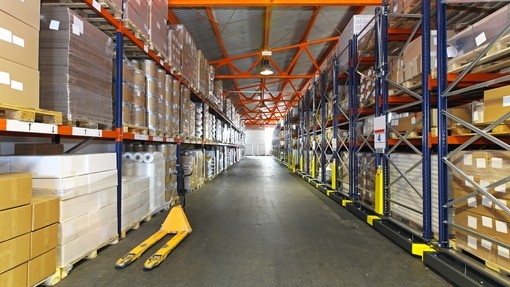Interchange fee litigation

Details
Retailers left feeling MIF-fed after Commercial Court rejects £450m claim - Asda and others -v- MasterCard [2017 EWHC 93 (Comm)]
The Commercial Court recently gave judgment on liability in relation to a claim by a group of prominent high street retailers, including Asda, Arcadia Group, Next Retail, B&Q, Comet, New Look, Iceland and Morrisons, against MasterCard.
The claim relates to multilateral interchange fees (MIFs) payable by retailers and other merchants when accepting payment via MasterCard branded credit or debit cards.
This decision is the latest in a series of court rulings on MIFs set by MasterCard. Sainsbury’s has already been awarded £69 million in damages and compound interest against MasterCard in a high profile test case last summer when the Competition Appeal Tribunal (CAT) found MasterCard had infringed competition law by imposing excessive MIFs.
This most recent Commercial Court decision by Popplewell J reached very different conclusions to the CAT and may tip the balance back in favour of MasterCard against the retailers.
The claim
Asda and the other retailers claimed that:
- UK MIFs (on transactions between UK merchants and UK cardholders)
- Irish MIFs (on transactions between merchants in Ireland and Irish cardholders) and
- EEA MIFs (on cross border transactions between merchants in the UK or Ireland and cardholders from other EEA member states)
set by MasterCard were unlawful.
The claim relied on an earlier decision by the European Commission (Commission) in December 2007 which held that the EEA MIF set by MasterCard amounted to a restriction of competition and was therefore unlawful.
The claimants say they paid MIFs of around £437 million on MasterCard branded card transactions from 2006. The vast majority of the claim related to UK MIFs.
The decision
Floor on prices
The Commercial Court held, in line with the Commission’s reasoning, that MasterCard’s MIFs had the effect of imposing a ‘floor’ on the price merchants had to pay to accept MasterCard branded payment cards. It found that acquirers would not charge merchants less than the MIF because they would suffer a loss if they did so. MIFs were therefore held, when considered in isolation, to restrict competition between acquiring banks.
Counterfactuals
The Commercial Court considered a number of possibilities and concluded that the only realistic counterfactuals were either (1) a zero MIF or (2) a positive MIF at a rate lower than those actually set by MasterCard (the maximum potentially lawful MIF).
Zero MIF
The Court went on to consider the implications of UK or Irish MIF set at zero (or of setting no MIF at all, which it said amounted to the same thing) in terms of MasterCard’s ability to survive in the market.
It held that the effect of competition from MasterCard’s competitor, Visa, was a relevant consideration.
It went on to conclude that if Visa’s MIFs had been set at their actual levels and MasterCard had no MIF (or one set at zero), card issuing banks, seeking to maximise revenues from interchange, would have switched their card portfolios from MasterCard to Visa. The effect would have been to drive MasterCard out of business in the UK.
The Judge rejected the retailers’ submission that the MasterCard and Visa schemes were materially identical and that he should therefore assume that if MasterCard had set MIFs at a lower rate or at zero, Visa would have had to operate at lower rates as well.
Ancillary restraint
The Court went on to find that the UK and Irish domestic MIFs were objectively necessary ‘ancillary restraints’ for the operation of the MasterCard scheme.
It held there was no restriction of competition because in the counterfactual world, there would not have existed lower Mastercard interchange fees (even if it had set no MIFs it would have lost all its UK business and been driven from the relevant market), and, similarly, Visa’s MIFs would not have been lower either.
The Sainsbury’s decision in the CAT
The CAT in 2016 in the Sainsbury’s case (see above) had previously concluded that if no MIFs had been imposed by MasterCard, issuing and acquiring banks would have entered into bilateral agreements which would have enabled the MasterCard scheme to continue.
The Court found those conclusions to have amounted to a construct of the CAT itself. Popplewell J highlighted the fact that the CAT’s analysis in that regard had not been advanced by the parties in that case, was not addressed by the factual witness evidence, and had actually been rejected by the parties’ experts in evidence before the Commercial Court.
The Commercial Court held that the CAT’s hypothesis that bilateral agreements would arise was not realistic.
Exemption under Article 101(3)
The Court said it was for MasterCard to establish an exemption under competition law, but it was for the retailers to prove (according to normal legal principles) that the MIFs they had paid were higher than any that could have been imposed lawfully.
The judge reached the view that the MasterCard MIFs provided a range of benefits to those merchants who accept payment cards. These benefits included ‘business stealing’ from merchants who do not.
The Court went on to quantify the value of these benefits by using the ‘merchant indifference test” (or ‘tourist test’) applied by the Commission but also making a number of further adjustments.
The Commercial Court’s conclusions
The Commercial Court’s conclusion was that the average MIF rates set by MasterCard in respect of:
- domestic transactions in the UK and Ireland; and
- cross-border EEA credit card transactions
were below the exempt and exemptible level and were therefore lawful.
The exemptible rate for cross-border EEA debit card transactions was, however, found to be below the level set by MasterCard for the period between 2006 and June 2008.
Comment
This decision raises a number of interesting points which may fall to be considered by parties to interchange fee litigation and by the courts going forward.
For example, the Commercial Court indicated:
- it was not bound by the Commission’s previous findings of fact and it must decide the case on the evidence before it which was largely directed to a different period of time and a different market to those considered previously by the Commission
- it was not bound by the CAT’s findings of fact or law and had the benefit of argument from a different legal team on the claimants’ side and arguments on both sides directed specifically at the reasoning expressed in Sainsbury’s
- the parties in this case submitted that the maximum caps imposed by the Interchange Fee Regulation were irrelevant to the determination of this dispute
- whilst in the CAT, Sainsbury’s and its expert had accepted that a MIF at some positive level was lawful, the claimants and their expert in this case contended that any MIF above zero was unlawful
- trial of claims by the claimants, Sainsbury’s and Marks & Spencer against Visa, alleging infringement in relation to Visa’s MIFs, commenced shortly after the conclusion of this trial. Those claims relate to similar issues but the evidence and argument is not identical to those in this case
- the judge was conscious it might be helpful for him to address and determine all issues raised, not just for the purposes of this trial and any appeal, but in the context of the wider litigation of other claims by these parties against Visa and other parties against Visa and MasterCard
- the claimants could have adduced evidence in relation to the Visa scheme and invited the Court to make findings about the lawful level of Visa MIFs by reference to that evidence but did not do so. The risk of inconsistent findings between the Court in this case and in the claims against Visa arose from the claimants’ approach to how to prove their case and meet the defence by MasterCard, and
- the evidence of the MasterCard witnesses was that if the UK MIF had been reduced to zero, MasterCard would have lost its entire UK business. The claimants did not seek to adduce evidence on the point from any issuer or witness with relevant experience of issuers.
Retailers to appeal?
Lawyers acting for the retailers have vowed to appeal the decision, one which they say is disappointing and surprising given that the European Commission, the General Court and the Court of Justice of the European Union have all previously unanimously ruled that interchange fees are anti-competitive.



